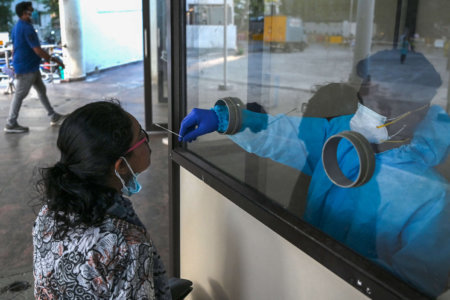
A survey by the German Academic Exchange Service (DAAD) showed an uptick in the number of Indian students in Germany who are pursuing their university studies for the current winter semester. Polled among 160 universities in Germany, the survey yielded surprising results as 2021 saw a pronounced decrease in summer enrollments due to international travel bans.
For starters, 330,000 international students are enrolled in Germany. In fact, around 75% of first-semester students are already attending a mix of online and physical classes in Germany.
The number of first-semester students in Germany has also risen to 72,000, and is set to continue increasing. According to DAAD President Dr Joybrato Mukherjee, this translates into a 13% growth – better than expected, and he believes it is largely due to the combined efforts of dedicated member universities and DAAD in attracting international students.
“The survey of our member universities allows us to look forward to the new year with hope,” Dr Mukherjee says.
Of notable interest is where the upswing in international students comes from – India, Turkey, Iran, Italy and France. A total of 29% of the higher education institutes (HEIs) noticed an increment of over 10% in the number of new registrants from India.

Germany is now becoming a more attractive study destination for Indian students. Source: Arun Sankar/AFP
Indian students in Germany: Why the rise?
In fact, Indian students in Germany make up the third largest group of foreigners studying at HEIs. Popular courses for Indian students include engineering, mathematics, natural sciences, law, economics and social sciences.
Reasons for this upswell of international students — including those from India — are attributed to an influx of guest and exchange (mostly non-degree) students at the HEIs, and a significant climb in the number of master’s students.
Germany is also fast becoming a preferred study destination since international students pay zero or little tuition fees as higher education is usually funded by the state government, has excellent university infrastructure and facilities, and its globally recognised degrees. More importantly, there are university programmes which are taught in English – an advantage for those who aren’t fluent in German.
However, since German is a widely used language within Europe, it pays to learn this language for ease of communication when studying there. Having proficiency in the language can enhance your job prospects.
To boot, students from outside of EU member states are allowed to work 240 half days or 120 full days per year, either in term or during vacations. Students will find Germany welcoming and friendly towards foreigners as well.

Germany’s tuition fees are almost zero and students can still enjoy high living standards there. Source: John Macdougall/AFP
As countries worldwide are still in the throes of a pandemic — especially with the new Omicron variant popping up — German Chancellor Olaf Scholz and the 16 state leaders have agreed on limiting restaurant and bar visits, cutting short quarantine periods to 10 days, and allowing those with booster shots who have been in contact with COVID-infected people to skip isolation.
Indian students who are interested in studying in Germany should be aware of these common university entry requirements:
- Having a list of your previous qualifications (not all foreign qualifications will be accepted, so be prepared to do bridging courses)
- Grade transcripts
- Language proficiency test (almost all undergraduate courses are in German – on the other hand, many postgraduate programmes are taught in English)
- Be prepared to take additional standardisation tests like the GRE or GMAT
- Prepare a motivation letter and a CV
Visa requirements include the university’s acceptance letter, university entrance qualification (if you have a high school qualification from India, you may most likely have to enrol for a four-semester preparatory course and pass the final examination), proof of finances and health insurance coverage (to be purchased before coming to Germany).
We wish all Indian students in Germany the best with their studies!










